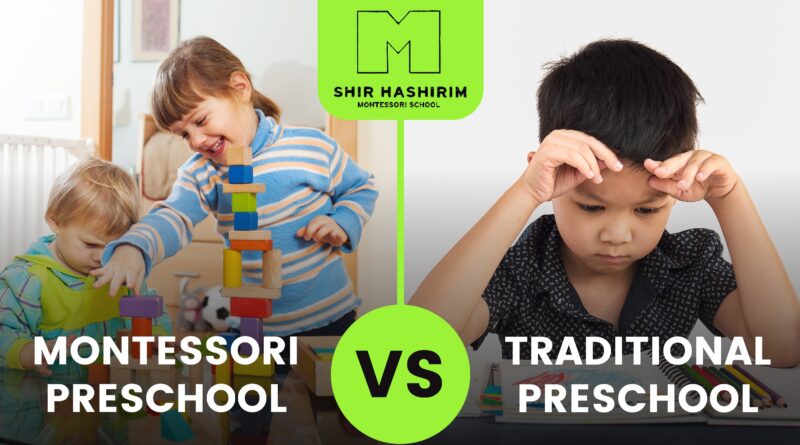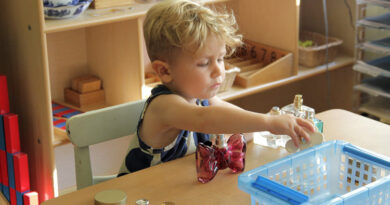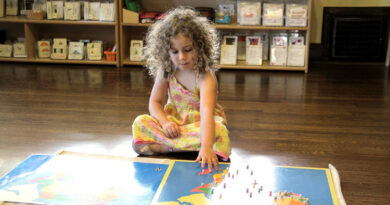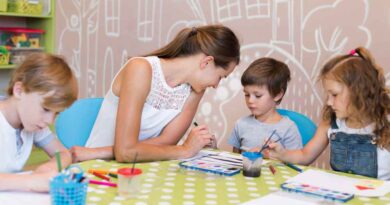MONTESSORI VS TRADITIONAL PRESCHOOLS
Montessori and traditional preschools represent two different methodologies to early childhood education. Here are some key points between the Montessori method and traditional preschool education system:
PHILOSOPHY AND APPROACH:
- Montessori Preschool: Developed by Dr. Maria Montessori, the Montessori method emphasizes a child-centered approach to learning. It encourages independence, freedom within limits, and hands-on, experiential learning. The environment is carefully prepared with age-appropriate materials to promote self-directed exploration.
- Traditional Preschool: Traditional preschools often follow a more structured and teacher-directed approach. The curriculum is predetermined, and children may engage in group activities and lessons guided by teachers.
ENVIRONMENT:
- Montessori Preschool: Classrooms in Montessori schools are typically designed to be open and inviting, with a focus on creating a prepared environment. The materials are arranged to be easily accessible to children, and there is an emphasis on mixed-age classrooms to foster collaboration and peer learning.
- Traditional Preschool: Classrooms in traditional preschools may have a more structured layout, with designated areas for different activities. The environment is often teacher-led, and age groups are usually separated into distinct classes.
CURRICULUM:
- Montessori Preschool: The Montessori curriculum is based on the belief that children learn best through self-discovery and exploration. It includes a wide range of hands-on materials that cover various subjects, including practical life skills, language, mathematics, and cultural studies.
- Traditional Preschool: Traditional preschools typically follow a predetermined curriculum that may include specific subjects such as language arts, math, and science. Teachers guide students through planned activities and lessons.
ROLE OF TEACHERS:
- Montessori Preschool: Montessori teachers, often referred to as guides, play a supportive role. They observe and guide children based on their individual needs, providing assistance when necessary. The goal is to foster independence and self-discipline.
- Traditional Preschool: In traditional preschools, teachers often play a more instructive role, leading group activities and lessons. They provide direct instruction and guidance to the entire class.
ASSESSMENT AND EVALUATION:
- Montessori Preschool: Assessment in Montessori education is often ongoing and less formal. Teachers observe children’s progress through their interactions with materials and peers rather than relying on traditional testing methods.
- Traditional Preschool: Assessment in traditional preschools may include more formal evaluations, such as tests or assessments of specific skills and knowledge.
SHIR-HASHIRIM MONTESSORI PRESCHOOL
Since 1985, Shir-Hashirim Montessori Preschool has been educating kids from 18 months to 6 years through a warm, caring hands-on environment. We help kids build confidence, independence, self-esteem, and resilience. Our goal is to guide today’s learners into tomorrow’s leaders. If you are interested in exploring the Montessori Method, contact us today or call us at (323) 465-1638 to ask a general question or schedule a visit!




